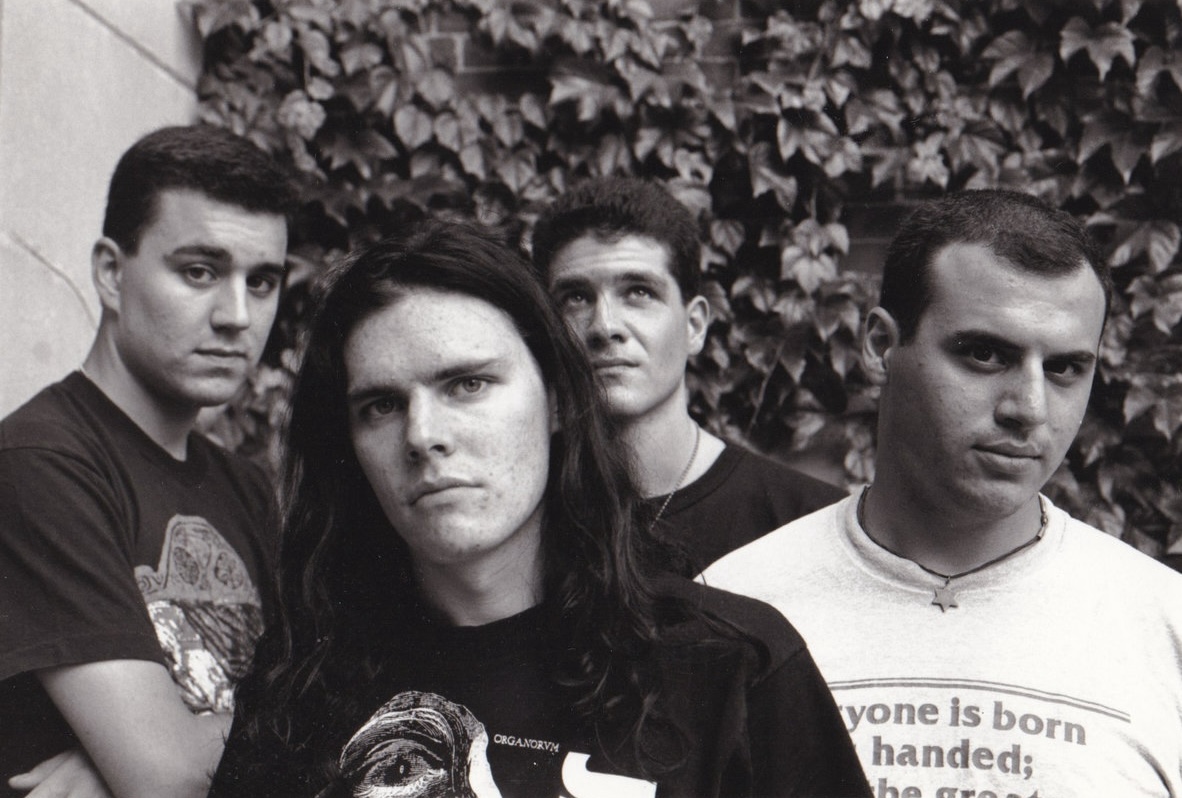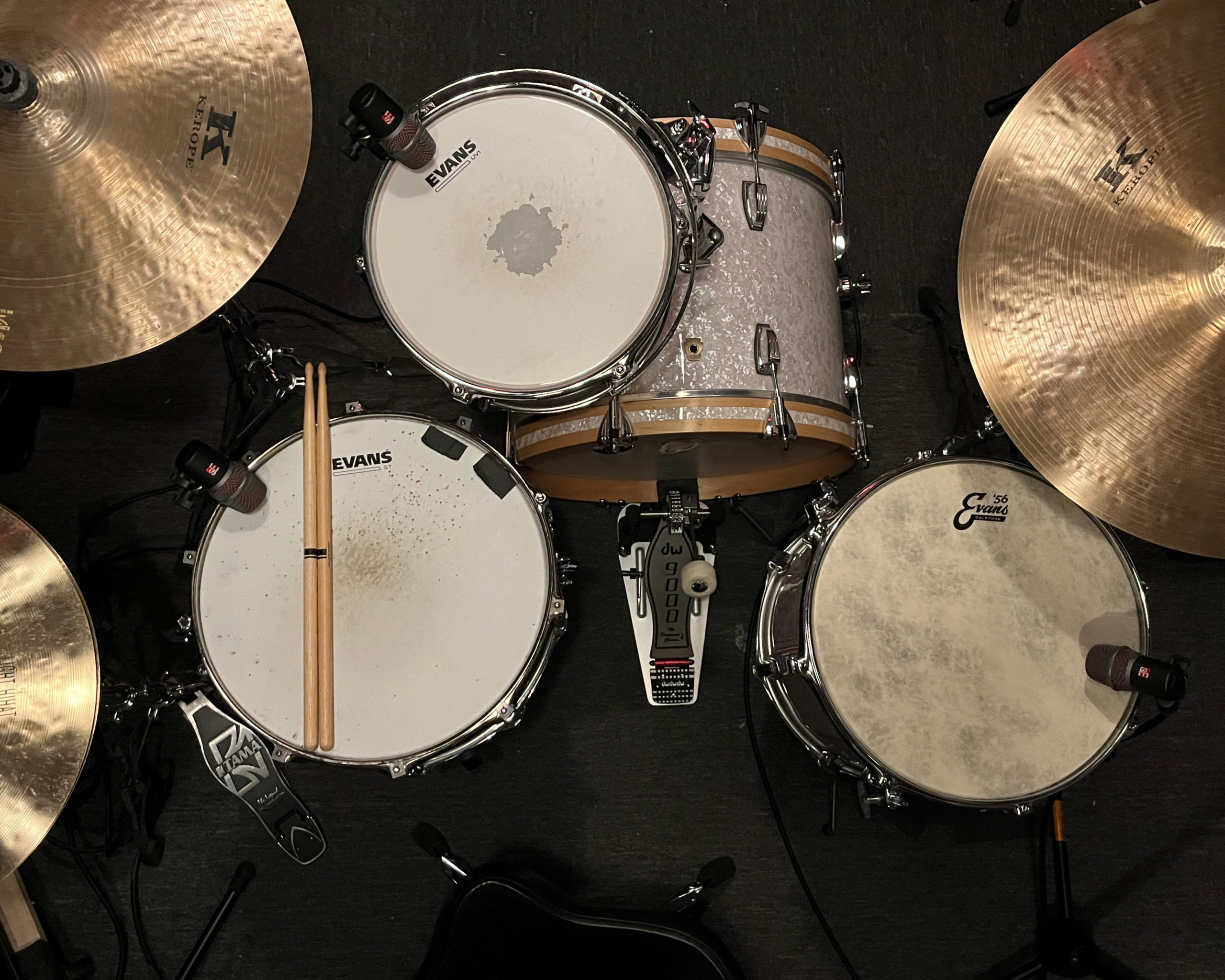I joined Jawbox in 1992. It wasn’t my first band but it was my first mature band, the first group that was already on its way, touring, making records. It was not only a new practical level for me but a new social one as well. The band was known and popular. It was a breakout situation for me and I was anxious. My first couple of months with the group were spent learning the songs. Our singer and leader, J. Robbins was touring with his friends in Pegboy and we used the time at home to get me settled in with Kim (Coletta, bass) and Bill (Barbot, guitar and vocals).
I knew the songs as a fan so rehearsing them was more a matter of getting a handle on the arrangements than finding my place in them, a goal we postponed until J. got home. By that time, nine weeks later, I was ready to run through the set. Looking back, I established myself quickly, and if memory serves my first show in the band was in July of that year and we left for tour immediately after that.

We wrote, in those short months, two songs as a group, a new and exciting turn for the band. Previously, J. more or less wrote the material and presented it to the band fully formed and arranged. One of the new songs, “Jackpot Plus!” was, in some ways, as much of a straight-up post-hardcore song as we ever played. Like many young players, I was creating my parts to suit the genre as opposed to molding the genre to suit my playing. Two relevant drummers in particular, Peter Moffett from Government Issue and John McEntire from Bastro were on my mind, and though I no doubt failed to rise to their level, I think my beats are a short step away from “Jaded Eyes” and “Recidivist.” What I wanted was to sound like them.
The other song we wrote was called “Motorist.” It was a new kind of song for the band, a new feel. It marked my first effort to rip off Manu Katché, Peter Gabriel’s drummer from So onward. It was, like many such efforts, a failure. I was hoping for something along the lines of “Digging in the Dirt,” which was released the month before on Peter Gabriel’s Us the eagerly anticipated follow-up to So.
There was a lesson in this failure: not sounding like Katché led directly to a reliance on my own voice and feel on the drums. And I noticed it. Whether or not I sounded like anyone else became immaterial and even something to be avoided. That is, I think “Motorist” was the first time I sounded like myself. From that point on, I brought influences I knew I could not reproduce, just to see what would happen in the group.
We re-recorded the song “Jackpot Plus!” for For Your Own Special Sweetheartas well, and the sort of refinements we were looking for individually and as a group are audible. The production is more focused, more in tune with the kind of energy we sought in our live performances. And the feel of it is shared, common among us. By the time we recorded FYOSS we were functioning much more as a single unit, feeling our performances together instead of playing by rote.
I found that almost anytime I introduced one of Peter Gabriel’s or Manu Katché’s rhythmic strains into the band, it warped or escalated or shifted into a new and original feel. To reiterate at the risk of redundancy, the distinction between influence as a site of imitation and influence as a site of creation changed everything. I don’t think I quite knew this before. And as our music became increasingly reliant on the drumming, these strains came to guide much more of what we were writing. As was true for the band as a whole, this was the moment I transitioned from being a musician who sought to make sounds like those I loved (imitation) to one who sought to make sounds that originated in my own playing (creation). Like PG says in “Sledgehammer,” paraphrased: I shed my skin. This was the new stuff.




